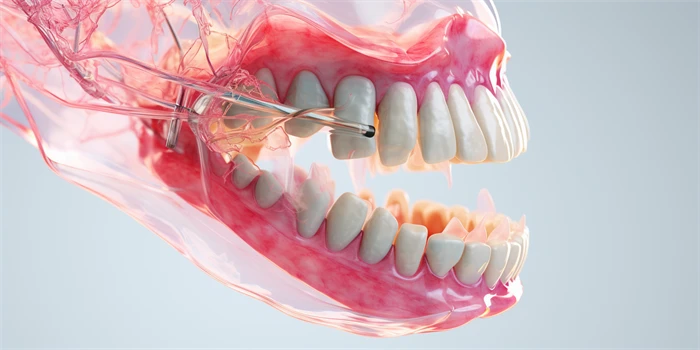Dentine bonding agents play a crucial role in modern dentistry, helping to improve dental health and ensuring long-lasting restorations. These agents are used in various dental procedures, including cavity fillings, veneers, and dental crowns. By understanding the benefits of dentine bonding agents, you can make informed decisions about your dental care. In this article, we'll provide a complete breakdown of these agents and how they benefit your dental health.

1. What are Dentine Bonding Agents?
Dentine bonding agents, also known as dental adhesives or bonding agents, are materials used to create a strong bond between dental restorations and the natural tooth structure. These agents are typically composed of a resin component that adheres to the tooth and a monomer that promotes the adhesion process.
To facilitate effective bonding, dentine bonding agents rely on the principle of micromechanical retention. This means that the agents create tiny mechanical anchors within the natural tooth structure, ensuring a secure attachment between the restoration and the tooth.
2. Improved Aesthetics
One of the primary benefits of dentine bonding agents is their ability to improve the aesthetics of dental restorations. By bonding restorations directly to the tooth structure, these agents eliminate the need for traditional anchoring methods that can create visible metal or porcelain margins.
The use of bonding agents allows for seamless integration, resulting in restorations that blend harmoniously with the natural teeth. This is particularly important for cosmetic dentistry procedures such as veneers and tooth-colored fillings.
3. Stronger Restorations
Dental restorations that are bonded using dentine bonding agents exhibit increased strength and stability. The micromechanical retention created by these agents enhances the overall structural integrity of the restoration.
In addition to improving durability, the use of bonding agents helps to minimize the risk of restoration failure, such as debonding or secondary caries. This ensures that your dental restorations have a longer lifespan and reduce the need for frequent replacements.
4. Protection against Sensitivity
Dentine bonding agents provide a protective barrier that helps to reduce post-operative sensitivity. When a restoration is placed on a tooth, it can sometimes cause sensitivity to temperature changes or pressure. However, the adhesive properties of dentine bonding agents act as a buffer between the restoration and the underlying tooth structure, minimizing sensitivity.
Furthermore, these agents also help to prevent microleakage, which can lead to bacterial invasion and subsequent tooth decay. By sealing off potential entry points, dentine bonding agents play a crucial role in ensuring optimal oral health.
5. Preservation of Natural Tooth Structure
Dentine bonding agents allow dentists to preserve a significant amount of natural tooth structure during dental procedures. Unlike traditional methods that require the removal of healthy tooth structure to create space for restorations, bonding agents facilitate conservative preparations.
By minimizing the removal of natural tooth enamel or dentin, bonding agents ensure that the tooth retains its strength and function. This conservative approach is beneficial for the long-term health of the tooth.
...Frequently Asked Questions (FAQ)
1. Are dentine bonding agents suitable for all dental procedures?
Yes, dentine bonding agents can be used for a wide range of dental procedures, including cavity fillings, veneers, dental crowns, and orthodontic brackets. Your dentist will assess your specific needs and determine the appropriate bonding agent for your procedure.
2. How long do dentine bonding agents last?
The longevity of dentine bonding agents depends on various factors, such as the type of agent used, the oral hygiene practices of the individual, and the forces applied to the restoration. On average, bonding agents can last between 5 to 10 years.
3. Can dentine bonding agents cause allergic reactions?
In rare cases, some individuals may be allergic to certain components of dentine bonding agents. Before applying any bonding agent, your dentist will conduct a thorough evaluation of your medical history and perform any necessary tests to ensure compatibility and minimize the risk of allergic reactions.
4. Does bonding with dentine bonding agents make dental restorations reversible?
No, bonding dental restorations using dentine bonding agents is not reversible. Once a restoration is bonded to the tooth structure, it cannot be easily removed without damaging the tooth. However, advancements in bonding techniques have made it possible to replace or repair restorations without extensive damage to the tooth.
5. Can dentine bonding agents be used on sensitive teeth?
Yes, dentine bonding agents are often used on sensitive teeth to provide additional protection and alleviate discomfort. These agents can help reduce sensitivity by sealing off exposed dentinal tubules and preventing external stimuli from reaching the nerves.
6. How can I maintain dental restorations bonded with dentine bonding agents?
Proper oral hygiene practices, such as regular brushing, flossing, and dental check-ups, are essential for maintaining dental restorations. Additionally, avoiding excessive biting or chewing on hard objects can help prolong the lifespan of the restorations.
7. Can dentine bonding agents be used on children?
Yes, dentine bonding agents can be used on children, but the decision depends on various factors, including the child's dental health, age, and the specific procedure being performed. Your dentist will evaluate the situation and determine the most suitable treatment options for your child.
8. Are there any alternatives to dentine bonding agents?
Yes, there are alternative methods for bonding dental restorations, such as mechanical retention, self-etch adhesives, or glass ionomer cements. However, dentine bonding agents are widely used due to their excellent adhesion properties and aesthetic benefits.



